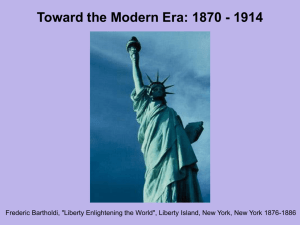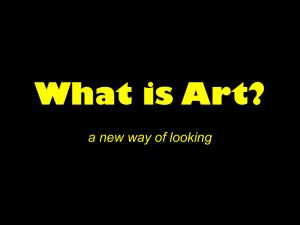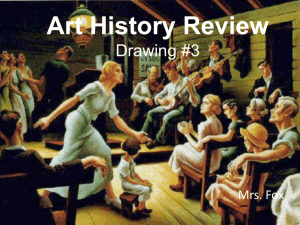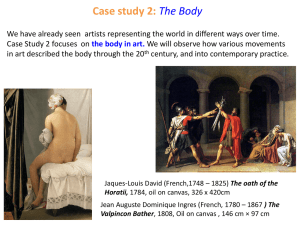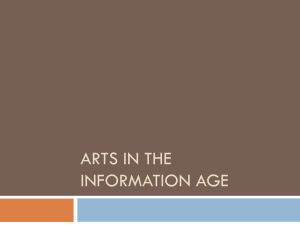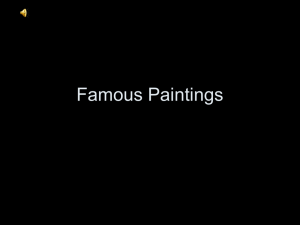IMPRESSIONISM (1870s
advertisement
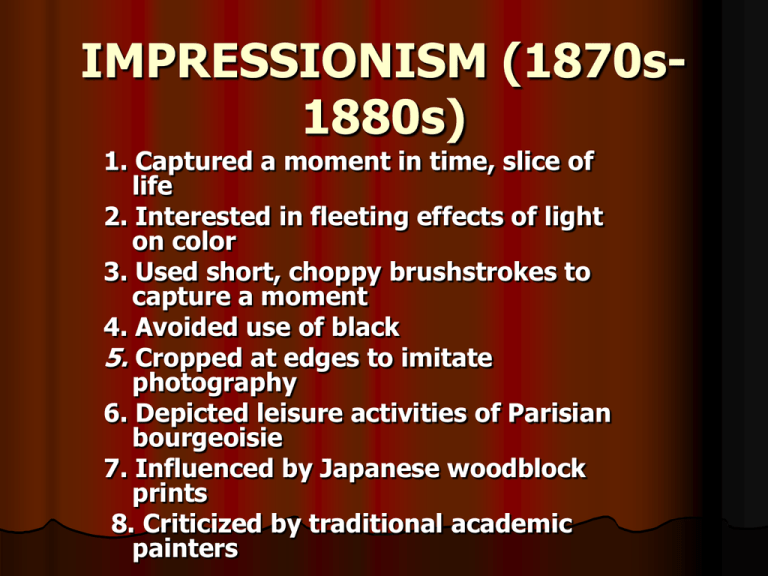
IMPRESSIONISM (1870s1880s) 1. Captured a moment in time, slice of life 2. Interested in fleeting effects of light on color 3. Used short, choppy brushstrokes to capture a moment 4. Avoided use of black 5. Cropped at edges to imitate photography 6. Depicted leisure activities of Parisian bourgeoisie 7. Influenced by Japanese woodblock prints 8. Criticized by traditional academic painters Monet series of paintings showing a subject at various times Renoir portraits and slices of French life Pissarro cityscapes capture bourgeois life Degas dancers, horse races and portraits Lautrec garish colors, elevates the status of poster art Cassatt American Impressionist, mentored by Degas CLAUDE MONET, Saint-Lazare Train Station, 1877. Oil on canvas MARY CASSATT, The Bath, ca. 1892. Oil on canvas, HENRI DE TOULOUSE-LAUTREC, At the Moulin Rouge, 1892–1895 EDGAR DEGAS, Ballet Rehearsal, 1874. Oil on canvas, POST-IMPRESSIONISM1890s Influenced by, but dissatisfied with Impressionism Impressionists were too tied to natural world--only painted what they saw Wanted to restore line and solid colors Seurat •Pioneer of pointillism or divisionism •Theory of optical mixing based on work of Chevreul •Most famous work-A Sunday on the Grande Jatte Paul Gauguin •Rejected artistic traditions of Western civilization •Influenced by "primitive" cultures-Tahiti •Used flat planes of color to express feelings Vincent Van Gogh •Used color and brush strokes to express his feelings •Color reflects moods-for example, yellow is happy •Influenced the Expressionists Paul Cezanne •Capture the underlying structure of objects and nature •Restore formal elements: the use of color and shape •Series of paintings of Mont SainteVictoire VINCENT VAN GOGH, The Night Café, 1888. Oil on canvas PAUL CÉZANNE, The Basket of Apples, ca. 1895. Oil on canvas, PAUL GAUGUIN, Where Do We Come From? What Are We? Where Are We Going?, 1897. Oil on canvas GEORGES SEURAT, A Sunday Afternoon at La Grande Jatte, 1884-1886. Oil on canvas, 6’ 9”x10’. Art Institute of Chicago
